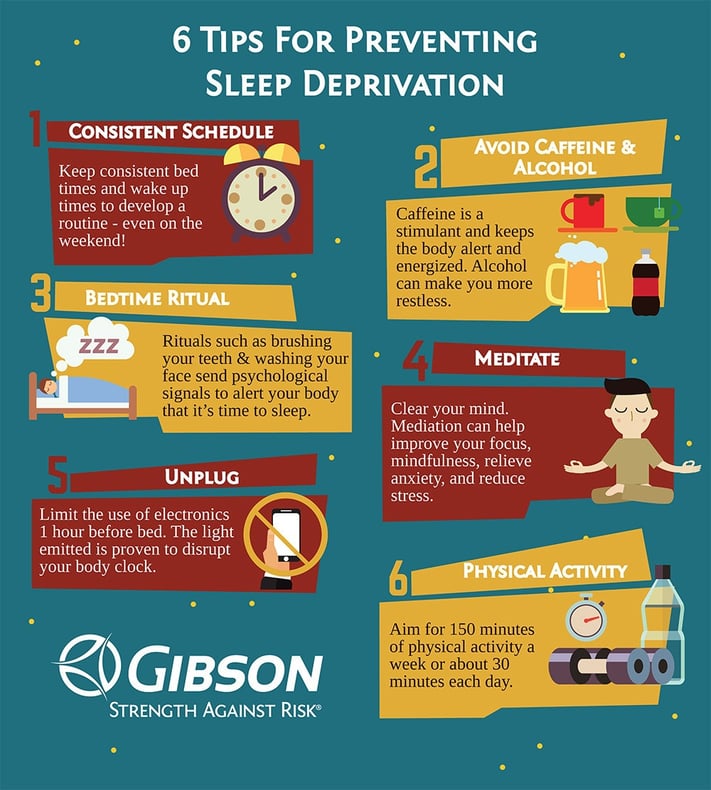 I’ll sleep when I’m dead.
I’ll sleep when I’m dead.
Maybe you’ve used that phrase or heard a colleague or friend utter it. In the midst of our busy lives, sleep often falls by the wayside. But the reality is - sleep isn’t an option. A recent British survey revealed that people who sleep less than six hours a night have a 13% higher mortality rate than those sleeping at least seven hours.
Many factors contribute to sleeplessness such as family worries and financial concerns, but one factor that stands out above others: work. The work we do can affect the quality of sleep we get. It can impact how much free time we have, how anxious we feel, and how tired we are.
Reports by the American Sleep Disorders Association show there are 70 million Americans affected by a variety of sleep disorders and up to 1/3 of Americans have insomnia.
The prevalence of sleep disorders means no workplace is immune from the challenges sleep deprivation can present. Do your workplace wellbeing initiatives address sleep? Are employees aware of the damage sleep deprivation brings to their bodies and their productivity? Are you arming them with tools to improve the quantity and quality of their sleep? And are you making sure you get adequate sleep? You can’t forget about yourself! If you are suffering from sleep deprivation, you can’t be an effective leader.
The Impact Of Sleep Deprivation
Without adequate sleep, the brain will try to pull energy from food, specifically causing cravings for fatty and sugary foods. Added to the mix, decreased sleep levels can have negative effects on metabolism. This, with the increased caloric consumption from poor sources, can lead to increased weight and various risk factors associated with weight gain. Sleep deprivation has been tied to an increased risk of type 2 diabetes, cardiovascular disease, obesity, and depression.
Sleep deprivation can also make you more prone to sickness by stressing the immune system. Individuals who get less than seven hours of sleep each night may be three times more likely to develop a cold and less able to fight off an infection.
Increased irritability and decreased cognitive processing from lack of sleep can impact your time management and social wellbeing, and it has become a big workplace wellbeing issue in recent years. Restlessness and the lack of quality sleep impacts your mood, decreases energy, and hinders productivity. Business Insider reports that sleep loss currently costs the US economy $411 billion each year. Lack of sleep and a reduced focus means we can never quite operate to our full potential.
6 Helpful Tips
To improve both the quality and the quantity of sleep, you should try to create a great bedtime routine. Try these 6 tips before bed:

- Consistent Schedule - Keep consistent bed times and wake up times to develop a routine. Try to maintain your sleep and wake schedules - yes, even on the weekends! Sleep Cycle Alarm Clock is an app that determines when you are in the lightest sleep cycle, the best time to wake up, and gently wakes you so you can start your day more rested and relaxed.
- Avoid Caffeine And Alcohol – Caffeine is a stimulant and keeps the body alert and energized, while alcohol seemingly makes you drowsy, it can make you more restless.
- Bedtime Ritual - Having a bedtime ritual can be as simple as brushing your teeth and washing your face. These cues send psychological signals to alert your body that it’s time to sleep.
- Meditate – Clear your mind. Headspace is an app that makes meditation easy. The guided meditations are suitable for all levels to improve your focus, mindfulness, relieve anxiety, and reduce stress.
- Unplug – Limit the use of electronics 1 hour before bed. The light emitted from devices is proven to disrupt your body clock. This is a great habit for kids to learn too!
- Physical Activity – Aim for 150 minutes of physical activity a week or about 30 minutes each day. An evening walk can give you time to reflect upon the day or time to catch up with a friend.
Sleep can’t wait until you’re dead. Applying these tips to your own bedtime routine can have a significant impact. Including sleep education in your workplace wellbeing initiatives can help improve overall health and wellbeing in the workplace!



